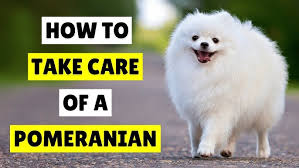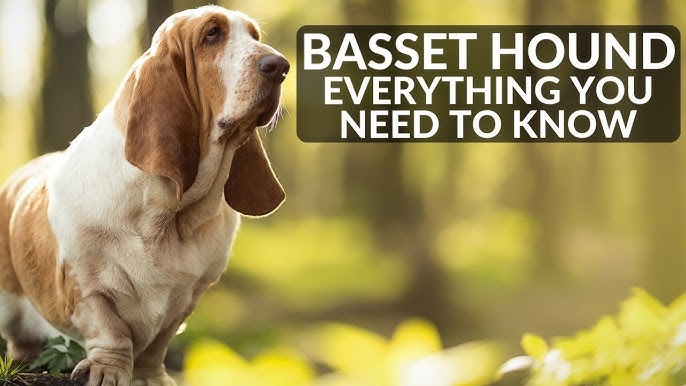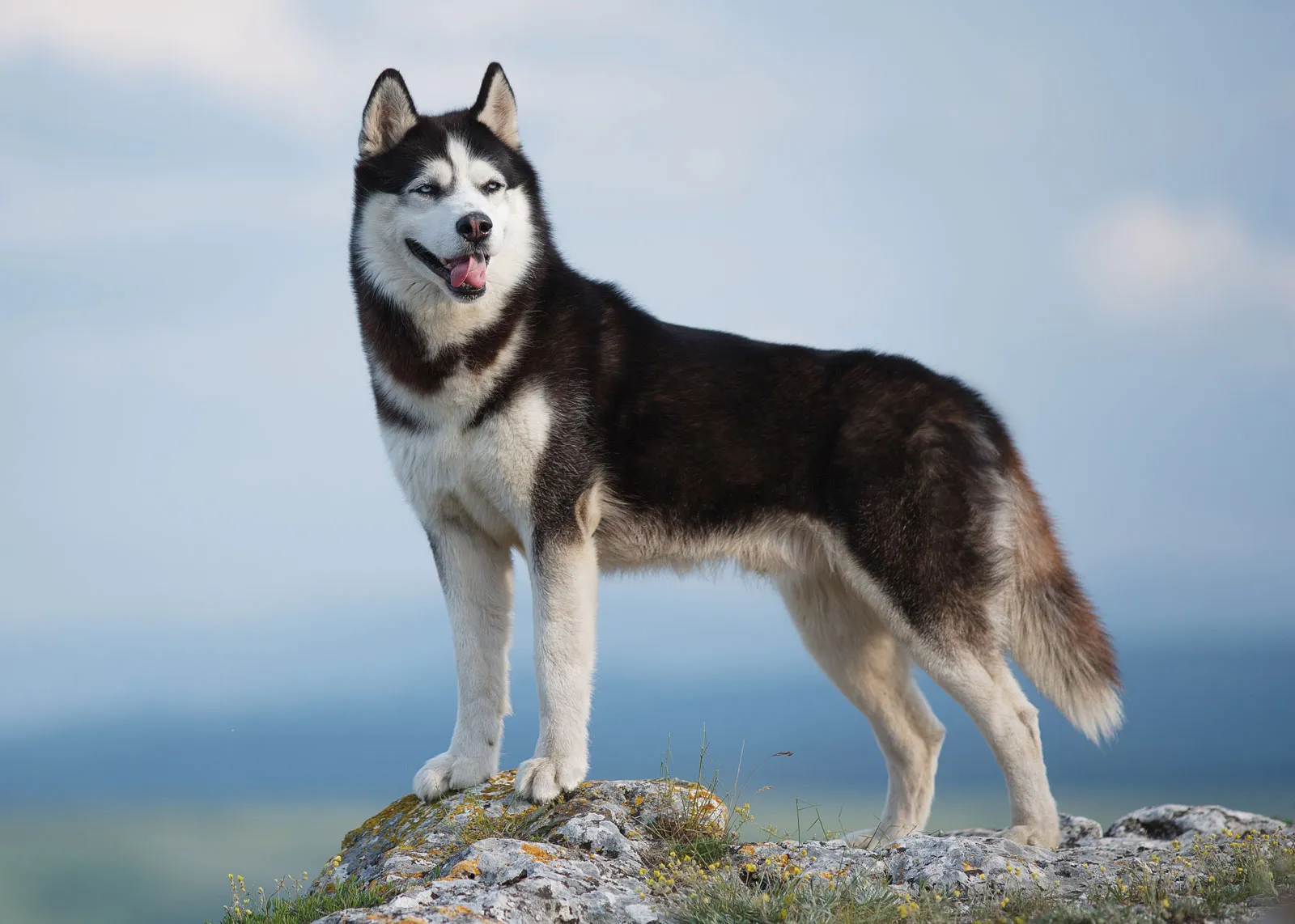🐾 Pomeranian Dog Breed: Complete Guide, How-To Care & Pros and Cons
The Pomeranian is a small yet bold dog with a big personality. Known for its luxurious fluffy coat, fox-like face, and lively spirit, this breed has captured the hearts of dog lovers worldwide. Despite its compact size, the Pomeranian is full of character and confidence. In this comprehensive guide, we’ll cover everything you need to know about owning and caring for a Pomeranian, including its history, personality traits, grooming needs, training tips, and more.
📌 Breed Overview
- Breed Name: Pomeranian
- Group: Toy Group (AKC)
- Origin: Germany / Poland (Pomerania region)
- Lifespan: 12–16 years
- Weight: 3–7 pounds (1.4–3.2 kg)
- Height: 6–7 inches (15–18 cm)
- Temperament: Lively, Curious, Alert, Loyal
- Coat Type: Double coat – thick, soft undercoat and a long outer coat
- Hypoallergenic: No
📖 History of the Pomeranian
The Pomeranian originates from the Arctic working dogs of the Spitz family. Named after the Pomerania region in Northern Europe, these dogs were once much larger and used for herding and sled pulling. Queen Victoria popularized the breed in the 19th century after falling in love with a small Pomeranian during her visit to Italy.
She began breeding smaller versions, leading to the miniature Poms we know today. Their royal exposure made them extremely fashionable in Europe and beyond.
🧠 Personality and Temperament
Don’t let their size fool you—Pomeranians have a big-dog attitude in a tiny body. Their key personality traits include:
- Confident: Bold and sometimes bossy.
- Alert: Great watchdogs—quick to alert owners of strangers.
- Affectionate: Loyal and loving with their family.
- Inquisitive: Curious about everything around them.
- Energetic: Loves to play, explore, and stay active.
Though they can be independent, Poms form strong bonds with their humans and thrive on attention and companionship.
🏢 Are Pomeranians Suitable for Apartments?
Yes, Pomeranians are great for apartment living due to their small size. They don’t need a yard and are generally content with indoor play and daily walks. However, they are vocal and may bark excessively if not trained properly, which could be an issue in sound-sensitive environments.
🧺 Grooming and Coat Care
The Pomeranian’s thick double coat is beautiful but requires consistent grooming to maintain its health and appearance.
Grooming Tips:
- Brushing: Brush 3–5 times a week to prevent mats and tangles.
- Bathing: Every 3–4 weeks with a gentle dog shampoo.
- Trimming: Trim around feet, ears, and sanitary areas regularly.
- Blow-Drying: After baths, use a dog-safe blow dryer to dry the dense undercoat.
- Shedding: Expect seasonal shedding; invest in a de-shedding tool.
- Nails and Ears: Trim nails monthly and clean ears weekly to prevent infections.
Many owners opt for a “teddy bear cut” or “puppy cut” to reduce daily maintenance.
🍖 Diet and Nutrition
Pomeranians are tiny but active dogs, so they need a balanced, nutrient-rich diet tailored for small breeds.
- Type of Food: Premium small breed kibble or wet food.
- Feeding Frequency: 2–3 small meals daily.
- Watch For: Obesity, especially in older Poms. Portion control is key.
- Hydration: Provide fresh water at all times.
Treats should be limited and used primarily for training rewards.
🏥 Health and Common Issues
Pomeranians are generally healthy, but they are prone to a few genetic and size-related issues, including:
- Dental Problems: Small jaws make them susceptible to tartar and gum disease.
- Luxating Patella: Dislocated kneecaps are common in toy breeds.
- Collapsed Trachea: Avoid tugging on collars—use a harness.
- Hypoglycemia: Especially in puppies—feed small frequent meals.
- Heart Disease and Eye Disorders: Regular checkups can catch early signs.
Preventive Care:
- Annual vet visits
- Dental cleaning
- Regular grooming and exercise
- Vaccinations and parasite control
🎓 How to Train a Pomeranian
Pomeranians are intelligent and enjoy learning new things but can be stubborn. Patience and consistency are key.
Training Tips:
- Start Early: Begin obedience and socialization as soon as possible.
- Use Positive Reinforcement: Treats, praise, and play work wonders.
- Short Sessions: Keep it fun and brief (5–10 minutes).
- Crate Training: Helps with housebreaking and provides a safe space.
- Leash Training: Use a harness instead of a collar for their fragile necks.
- Barking Control: Teach the “quiet” command early to prevent excessive barking.
Common commands include sit, stay, come, down, off, quiet, and leave it.
🏃 Exercise and Activity Needs
Pomeranians are surprisingly energetic and need daily physical and mental stimulation.
Recommended Activities:
- Short daily walks (15–30 minutes)
- Indoor fetch or tug-of-war
- Interactive puzzle toys
- Basic agility or obedience training
Despite their small size, boredom can lead to destructive behavior or excessive barking, so keep them mentally stimulated.
✈️ Traveling with a Pomeranian
Poms are portable, making them excellent travel companions. Get a comfortable, airline-approved carrier and make sure your Pom is familiar with car rides, public spaces, and crate travel.
Always bring along:
- Food and water
- Toys and comfort items
- Leash, harness, and waste bags
- Vet records (especially for air travel)
👨👩👧👦 Ideal Owners for a Pomeranian
The Pomeranian is best suited for:
- Individuals or couples who want a small, affectionate dog
- Families with older children (Poms are fragile for toddlers)
- Apartment dwellers
- Seniors and retirees
- First-time dog owners (with grooming commitment)
They may not be ideal for people who are away for long hours or those looking for a low-maintenance breed.
✔️ Pros of Owning a Pomeranian
- Compact Size: Perfect for apartments and travel.
- Big Personality: Entertaining and full of character.
- Loyal Companion: Forms deep bonds with owners.
- Trainable: Intelligent and eager to learn.
- Good Watchdog: Alert and vocal about intruders.
- Low Food Costs: Eats small portions.
❌ Cons of Owning a Pomeranian
- High Grooming Needs: Regular brushing and professional grooming needed.
- Can Be Noisy: Tends to bark if not trained.
- Fragile: Easily injured if handled roughly.
- Stubborn Streak: Training requires patience and consistency.
- Separation Anxiety: Needs lots of attention and companionship.
🧺 Final Thoughts
The Pomeranian is a delightful, high-energy companion that brings joy, laughter, and plenty of cuddles. If you’re ready to invest time in grooming and can offer daily love and interaction, a Pom could be the perfect addition to your family. They’re loyal, fun-loving, and packed with personality—proof that great things truly do come in small packages.




